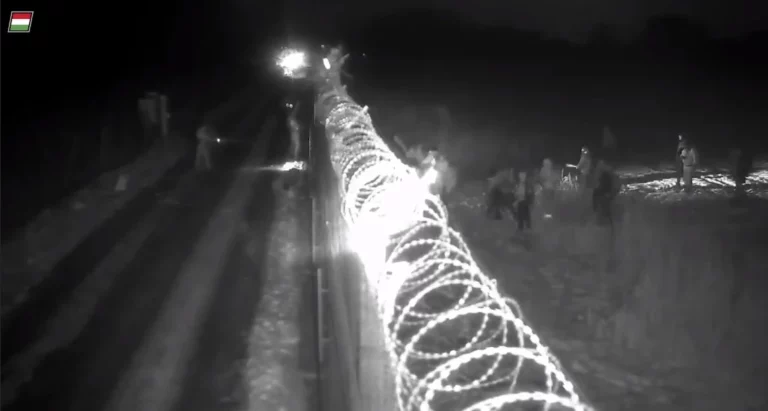Hungary border control
Hungary sends police units to protect Serbian, Macedonian border

Migrants are attacking the border more and more violently – VIDEO

Agriculture ministry: Extra support for field rangers at southern border
Fox’s new documentary: Hungary fighting for civilisation & against Soros – VIDEO

Minister: Hungary will protect EU external borders!

Smuggler who shot at border guards near Austria had mafia relations!

Manhunt ended near the Austrian border!

Hungary and Austria agreed to set up a joint criminal investigation unit
Hungary and Austria have agreed to set up a joint criminal investigation unit, organise joint patrols and expand information sharing...
Breaking – human smuggler fired on police at the Hungarian-Austrian border!

Chief security advisor: Number of illegal entry attempts up in January
Hungarian border police have stopped 4,200 migrants who attempted to illegally enter the country since January 1, 1,000 more than...
Armed migrant hunters on the Hungarian border?

Here is what you receive for trafficking 20 migrants in Hungary

Illegal migrants pelt police with rocks at Serbia border

Hungarian police arrest people smugglers in Slovakia
Hungarian police confiscates 11,000 boxes of cigarettes
Shocking: shooting at the Hungarian-Austrian border

Border police apprehends nearly 122,000 violators in 2021

Fidesz MEP: Márki-Zay and Gyurcsány ‘in full agreement’ despite ‘show of divisions’
Péter Márki-Zay, the prime ministerial candidate of the opposition, is in full ideological agreement with Democratic Coalition head Ferenc Gyurcsány,...




 ZH
ZH IT
IT DE
DE HR
HR NL
NL FR
FR JA
JA RO
RO RU
RU ES
ES TR
TR
